|
Genres, Themes, Actors, and Directors:
- Anthony Perkins Films
- Baseball
- Biopics
- Father and Child
- Karl Malden Films
- Mental Breakdown
- Robert Mulligan Films
Response to Peary’s Review:
Peary writes that this “interesting but dated adaptation of the first [best-selling] autobiography by controversial baseball player Jimmy Piersall” depicts his “mental collapse” as “the result of trying to live up to his father’s impossibly high expectations for him as a player.” He notes that “in effect, this film is rooted in the youth-problem pictures of the fifties: it is the reverse of Rebel Without a Cause, in which a troubled boy can’t express to his weak father his desperate need to receive some fatherly advice for once”, while “in Piersall’s case, he can’t express to his strong father his desperate need to stop being barraged with fatherly advice.” Peary adds that “with his display of nervous energy, emotional instability, paranoia, pent-up rage and finally, strait-jacketed catatonia”, Perkins “may well have been using Piersall to prepare himself for Norman Bates” in Psycho (1960) — indeed, his performance here remains potent evidence of his capacity to take on that role of a lifetime. Like Norman, Jimmy is severely (psychotically) hampered by parental pressure — though in this case, he emerges sane and whole after support from both his wife and consistent medical care. While the biopic storyline (naturally) plays fast and loose with the facts, the narrative is tightly constructed and refreshingly respectful of mental illness; Malden’s figure (purportedly exaggerated for the sake of dramatic tension) isn’t demonized, but rather presented as someone unable to see beyond his own vision of success for his son. While Peary (an enormous baseball fan) argues that the “film looks flat and phony, especially during the baseball scenes”, most film fanatics likely won’t be bothered by this.
Redeeming Qualities and Moments:
- Anthony Perkins as Jimmy Piersall

- Karl Malden as John Piersall
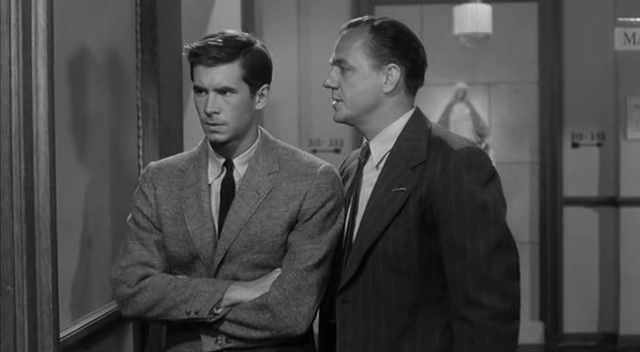
- Norma Moore as Mary Piersall
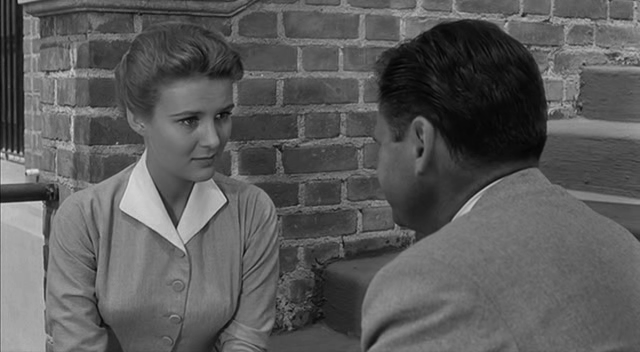
- Haskell Boggs’ cinematography
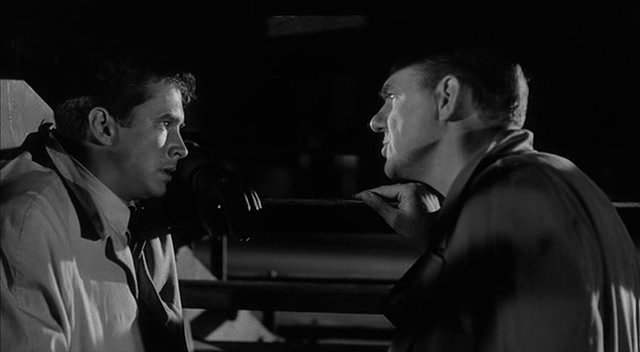
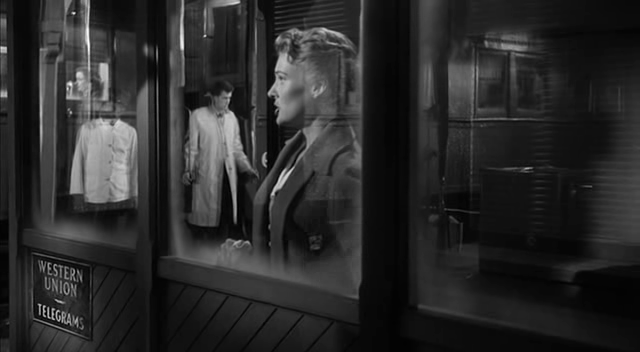
Must See?
Yes, for Perkins’ performance and as a fine film overall.
Categories
- Noteworthy Performance(s)
Links:
|
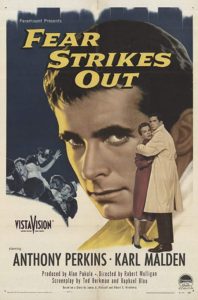





One thought on “Fear Strikes Out (1957)”
Not must-see – but Perkins and Malden fans may want to give it a look for their performances, and baseball fans may be interested.
This is an earnest but slow-moving biopic which nevertheless carries some real punch in its last 20 minutes; prior to that, it gets sort of weighed down by its repetitive nature. We see the dilemma early on – and then we keep seeing it over and over again, without nuance. By the time something is done about it, it’s a welcome relief but it’s slow in coming.
That said, it is ‘refreshing’ that Malden’s character isn’t depicted as a monster – just clueless. We get the sense that he didn’t question his own approach any more than his own dad (most likely) did.
And, yes, not only is it reported in a number of places that the film plays with the facts but, if you see photos of the real guy, Piersall looks more powerful than Perkins. It’s always more surprising to see ‘weakness’ in someone who looks physically and emotionally capable.
Though ‘Psycho’ was two or three years away, it’s easy to see the seed of Norman Bates in what Perkins does in this film.
Sidebar: Wikipedia reminds us that Perkins had a relationship with Tab Hunter – who played Piersall in a 1955 tv version of this story. Hunter eventually let it be known that it was Perkins taking on the film version that was mainly responsible for their split.